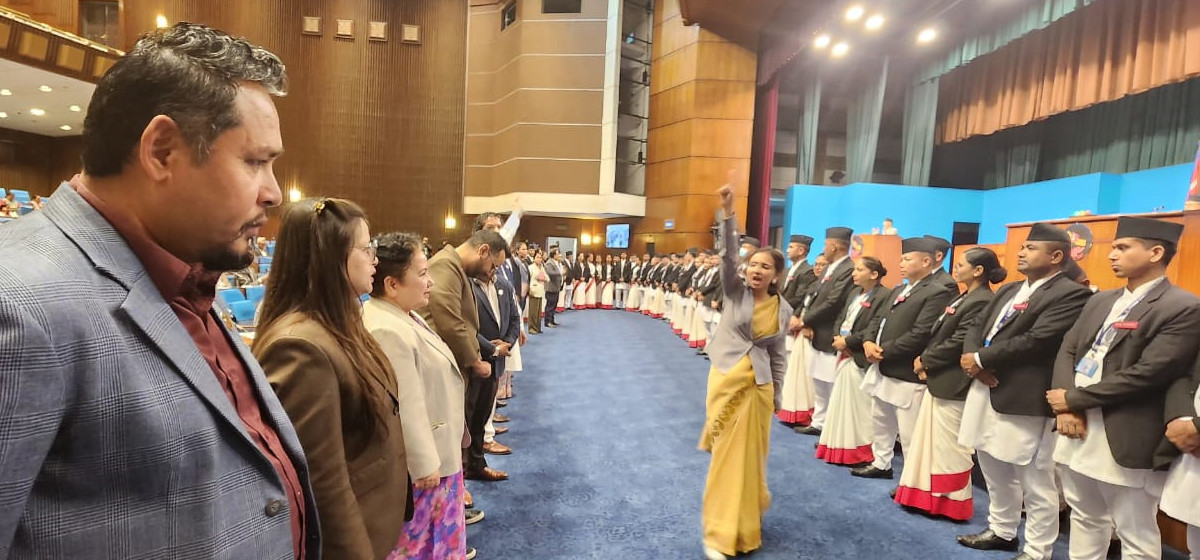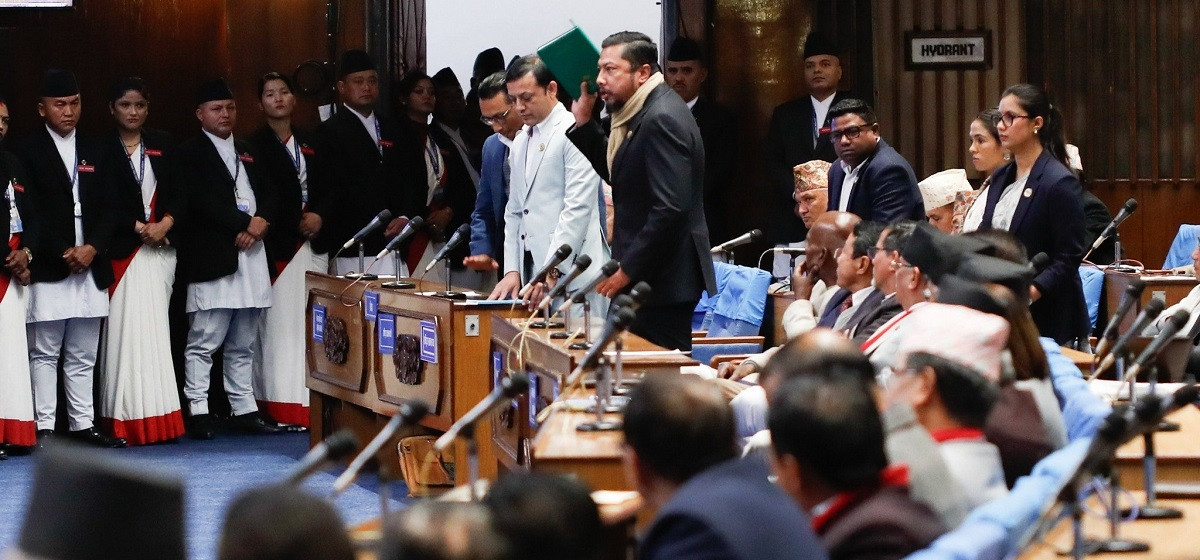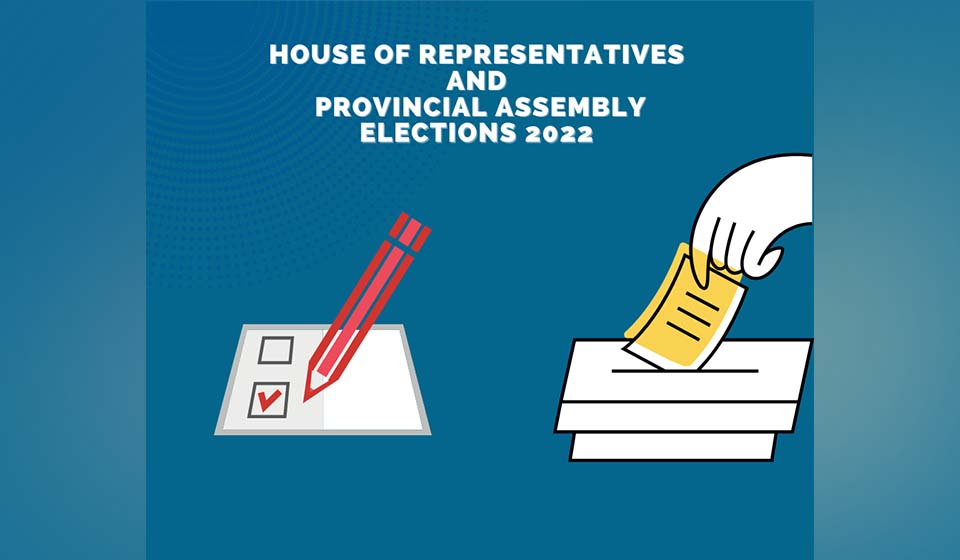KATHMANDU, Aug 6: The Rastriya Swatantra Party (RSP) and Rastriya Prajatantra Party (RPP) continued their boycott of the House of Representatives (HoR) meeting on Tuesday, voicing strong objections over issues ranging from alleged administrative mismanagement to human trafficking under the guise of visit visas.
As soon as HoR Speaker Devraj Ghimire commenced the meeting, lawmakers from both parties stood up from their seats in protest. Speaker Ghimire then allocated time for RSP’s Manish Jha and RPP’s Roshan Karki to speak during the Emergency Hour. After delivering their statements, parliamentarians from the protesting parties walked out of the meeting hall.
RSP parliamentarian Jha raised concern about alleged negligence in constitutional appointments involving Krishna Prasad Neupane in the Language Commission. He argued that the presence of another individual with the same name serving in the Commission for three years was indicative of administrative mismanagement. "The fact that another person named Krishna Prasad Neupane has been working in the Language Commission for three years clearly shows how the country is being run," Jha said.
RPP boycotts House meeting, RSP protests continue

He also cited the mention of the term "Human Trafficking" on page 46 of the report on the visit visa scam and demanded that those involved be brought to justice. Additionally, Jha called for the resignation of the President of the State Affairs and Good Governance Committee, citing ethical concerns over the 'cooling-off period' issue.
RPP parliamentarian Roshan Karki echoed Jha’s concerns and criticized the parliament’s inaction, stating that the fourth and fifth largest parties—RSP and RPP—have long opposed the misuse of visit visas. She expressed frustration that even prolonged protests by two parties had failed to compel the parliament to act.
Karki also alleged that Nepalis were being trafficked abroad under the guise of visit visas and urged the government to take immediate and effective measures to curb such illegal activities. She added that the parliament's failure to respond to even a single lawmaker's concern showed it was acting more in the government's interest than in that of the people.



































